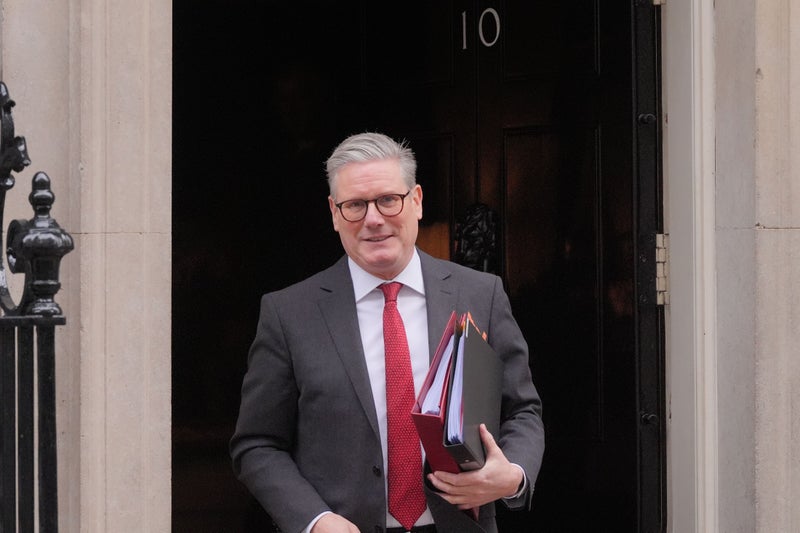Deputy prime minister dismisses suggestions of Labour rift, saying employment protections will boost growth. Angela Rayner has insisted Labour’s flagship package of workers’ rights will be ringfenced from a bonfire of regulation being pursued by the government to reboot economic growth. The deputy prime minister said that company bosses who were critical of the proposals needed to “get on board” because bolstering employment protections was good for workers and growing the economy.
Speaking to the Guardian after figures showed Britain had narrowly avoided a recession last year, she dismissed suggestions there was a rift within senior Labour ranks over the sweeping changes to rights at work, amid growing pressure from businesses to water down the plans. “Absolutely the cabinet is united on it, because they understand this is pro-worker and pro-business as well,” she said. “The prime minister was really clear on this in his speech earlier this year, that people have to feel the growth. You can’t have growth that is over there somewhere, and ordinary working people can’t see it.
“There’s no point in us as a Labour government in the next general election, saying, look at these wonderful [growth] figures. We’ve done all this investment, and then people can’t see that in their communities, but with nothing to show for it.”. Union leaders have urged Labour to fight back against critics of its employment reforms, after a poll of 21,000 people showed the plan to ban zero-hours contracts and introduce other protections for workers was backed by the vast majority of voters.
However, senior Labour figures have been pushing to soften the reforms amid concerns over dwindling business confidence, according to the Financial Times. It is understood the government plans to announce a series of amendments to its flagship employment rights bill in late March. Ministers insist changes will be to “clarify” the plans rather than roll back the policy. Labour has come under heavy criticism from businesses since its October budget, which included a £25bn increase in employer national insurance contributions and 6.7% jump in the “national living wage”. Bosses warn the extra costs from the tax rises and employment reforms could force them to cut jobs.
It comes as ministers tear up planning rules and force Britain’s regulators to adopt a pro-business approach, amid efforts to revive the economy after sluggish progress to boost growth since last year’s election. Speaking at a separate event on Thursday to announce changes at the UK’s competition watchdog to “drive growth and investment,” the business secretary, Jonathan Reynolds, said firms would be given time to prepare for Labour’s employment rights reforms.
“I said that we would never introduce changes that would make it harder for firms to hire with confidence. And this is precisely why my department is consulting on many of the key aspects of our Make Work Pay reforms,” he said. Rayner saids strengthening workers’ rights would provide a bedrock for stronger economic growth in the future. “When you give people secure work, they can then raise a family, put money back into the local economy, and build a life for themselves. Businesses that do that have higher productivity, lower sickness levels and low staff turnover. So there’s a win win.”.
The deputy prime minister was speaking on the sidelines of an event held by the businessman Julian Richer, founder of the Richer Sounds hi-fi chain, to mark the fifth anniversary of his Good Business Charter accreditation scheme. Held at the TUC union movement’s London headquarters, Richer said good businesses supported the employment rights bill. More than 1,000 firms – including Aviva, Legal & General and TSB – are signed up to the scheme, which includes committing to pay the real living wage and offering fair hours and contracts.
“Please remind me which religion or moral code endorses paying workers below a real living wage, or accepts the uncertainty or misery zero-hours contracts cause when imposed on workers against their will?. “Over half of FTSE 100s now pay it. So clearly I’m not some maverick soft-touch benevolent philanthropist. This is a credible payment option. The best businesses pay good wages and they’re good businesses.”.






























